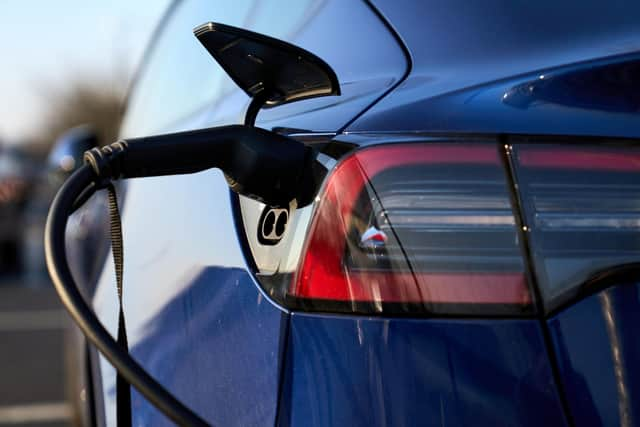Yorkshire council to reuse household waste, set up swap sites and increase car charging points in bid to tackle climate crisis
East Riding of Yorkshire Council has launched its Climate Change Strategy 2022-2030, which sets out a vision and priorities for rapid decarbonisation and building climate resilience across the authority.
It comes after the council declared a climate emergency in February last year and it has been developing a strategy ever since that highlights its commitment to delivering net zero and building climate resilience across the East Riding.
Advertisement
Hide AdAdvertisement
Hide AdThe strategy sets out key priorities and opportunities for climate action across the East Riding, which have been shaped by analysis of local data, expertise from across the authority, feedback from partners and public consultation.


However, it says the document has been more challenging to produce due to much of the council’s area being rural.
Ninety-three per cent of the East Riding of Yorkshire Council area is classed as rural and 44 per cent of the population living in the East Riding are in rural areas.
The council said that rural areas face a different set of challenges to that of urban areas especially when tackling climate change. There is limited availability of public transport, or access to suitable employment for some residents while the rural nature of the area also poses challenges to the council in that it needs more vehicles and crew to complete waste collection rounds.
Advertisement
Hide AdAdvertisement
Hide AdDeprivation is also a factor as it has a higher elderly population and there is a greater need for heating and energy yet less income to pay for it.


The Climate Change Strategy proposes climate action to be taken across a series of eight priority areas that the council covers such as transport, energy, waste, environment, buildings, economy, net zero council and climate resilience.
A more detailed action plan outlining immediate plans and projects aligned to the strategy will be developed to cover up to 2025 and the plans will be reviewed and updated every five years.
Work under the climate strategy will be monitored each year and will scrutinised at regular meetings of the Environment and Regeneration Overview and Scrutiny Sub-Committee.
Advertisement
Hide AdAdvertisement
Hide AdCoun Jonathan Owen, leader of East Riding of Yorkshire Council, said: "We declared a climate emergency in February 2021 and this spurred on the development of the strategy and has placed a focus on sustainability and climate change across the organisation.
"What our research and consultation has shown is that while the challenges are great, opportunities for the council to facilitate change and lead by example are within our grasp and we are determined to do everything we can to tackle the climate emergency.
"COP27 is focusing the mind on the challenges and opportunities climate change presents at a global level, and from a local perspective this strategy highlights our commitment to tackling climate change in the East Riding.
"Engaging with our local residents, businesses and partners has been key to developing the strategy and we are fully committed to working with and supporting everyone across the East Riding on their climate action."
Advertisement
Hide AdAdvertisement
Hide AdSome of the proposals that the strategy puts forward are to install more electric charging points, invest in infrastructure for better walking and cycling routes, create wildlife habitats and plant trees on council land, work towards better internet connections to reduce the need to travel, maximise opportunities for renewable energy generation and use at council properties and buildings, increase the amount of house-hold waste that can be reused, recycled or composted and set up sites where house-hold items can be donated for repair or swap instead of being thrown away.
It follows work over the last ten years that the council has already done to mitigate the effect of its operations on the environment.
Some of the projects that have already been carried out include: the addition of eight electric vehicles, including one electric minibus, for the council to use in delivering its services; installation of a solar farm at the council’s South Cliff Holiday Park in Bridlington and the replacement of inefficient lighting with LED lights for street lighting and at council sites.
